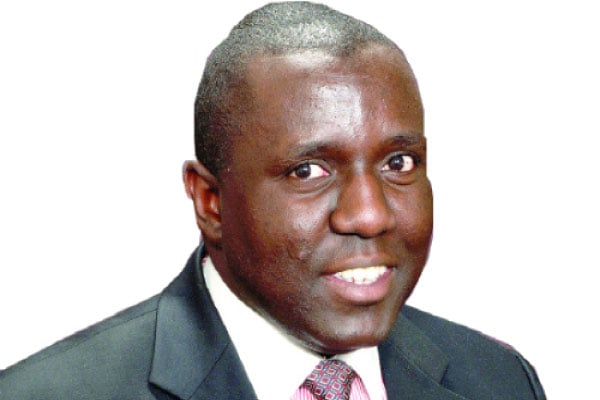Prime
Managing fewer resources should be priority

Author: Mr Karoli Ssemogerere is an Attorney-at-Law and an Advocate.
What you need to know:
- High cost of living remains exactly the same, high taxes, better social services, rapid emigration of senior citizens to low living cost, low tax jurisdictions. Interest rates are returning to historical averages. In 1980, a 30-year mortgage was about 9 percent and in 2000, the same mortgage was about 8 percent.
The US inflationary spiral is real in some sense, but more a net effect of different sectors of the economy tuning in simultaneously after shutting down in the pandemic.
High cost of living remains exactly the same, high taxes, better social services, rapid emigration of senior citizens to low living cost, low tax jurisdictions. Interest rates are returning to historical averages. In 1980, a 30-year mortgage was about 9 percent and in 2000, the same mortgage was about 8 percent.
In 2022, after three rounds of belt-tightening, the 30-year mortgage is cresting at about 7.5 percent. This is the real cost of money, banks make about 300 basis points above the central bank rate. The United States Federal Reserve is also fighting to restore equilibrium in the United States dollar, the world’s reserve currency, a development that seems to have caught the rest of the world unaware and vulnerable. The IMF is not happy with US monetary policy that has seen a remarkable flight to “quality”- the 30-year US Treasuries.
In the much-watched crude oil market where again the United States Dollar plays an outsize role – “petro-dollar” the reference to a historical secret pact between Saudi Arabia and the United States during the time of Nixon-Kissinger the world’s biggest oil producer that prices 80 percent of crude oil contracts in US dollars, crude is coming back to earth.
In early 2022, crude oil reached about $140.00 at its highest. Crude is trading at about $80.00 just $20.00 from the projected $60.00 price per barrel for 2023.
OPEC’s recent move to cut back global oil production by 2 million barrels is purely symbolic as crude oil demand is expected to fall in the winter months. In parallel, the price of natural gas and heating oil is going to keep Europe’s economy officially in a recession on the move.
Crude Oil at $60.00 plus pipeline costs are likely to depress the dividends Uganda is looking at from the sale of crude oil. The Chinese never do business at a loss, and definitely Total Energies will not find a subsidy they didn’t like.
The Democratic Governance Facility (DGF) announced its closing doors in Uganda at the end of the year. DGF has provided a significant basket of donor funds that realistically have other priorities elsewhere.
Ahead of the 2026 elections, there is little likely to change in the domestic environment. Our economy, like most of the rest of the world, remains feeble. Uganda can only collect 45 percent in domestic revenue.
High tax rates and a high incidence of new taxes have flattened entire sectors of the economy one by one as the government struggles to meet costly promises.
Post-Covid, the government was forced to raise science teachers’ pay significantly partly to avoid brain drain to neighbouring countries, where teachers are paid more. In the second quarter, URA finds itself unable to remit refunds to taxpayers owed overpayments and is likely to launch a new round of audits to crush enfeebled taxpayers.
After Covid led to several business closures, the exit lanes are filling again, and Big Box operator Game announced its exit. It’s easy to understand why exit lanes are full when the good news is state operator Vision Group is posting Shs1 billion in profit on revenue of Shs800 billion.
The financial stress alluded to by Finance Minister Matia Kasaija and his deputies is real. Delayed salaries and budget cuts to afford some space to fund the 2021-2026 priority- Parish model, are distorting the way most countries are functioning.
Next door in Kenya, new President William Ruto found the Treasury empty and is seeking to list more government enterprises on the exchange on the bourse to raise Kshs 800 billion to fund manifesto promises.
Managing fewer resources in 2023 must be a priority of every economy. In Uganda, moderate rather than drastic focused on key foreign exchange earners, coffee, tourism, and services. In these sectors bad ideas must be quickly isolated, the intended transfer of UCDA to the Ministry of Agriculture will numb an emerging sector. Licensing trawlers and excess fish factories are draining Lake Victoria of all viable fish. Tourism, a big foreign exchange earner, should see more budget allocation. Education and other services also need more attention. Kampala’s South Side, Makindye East, is full of Kenyans and West Africans in search of higher education.
Mr Ssemogerere is an Attorney-At-Law and an Advocate. [email protected]


